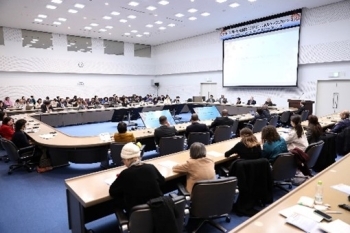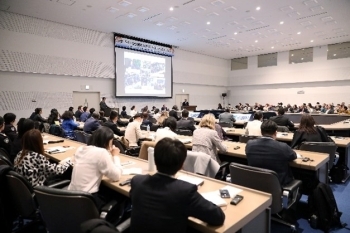Women's Issues
Women, Peace, and Security (WPS) Panel Discussion: How Japan can contribute to promoting women's participation in international peace and security.
G7 GEAC and WAW! Follow-up event
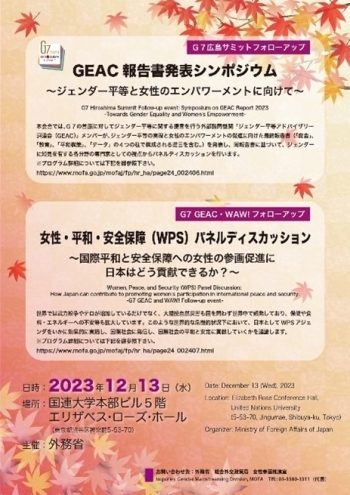
Concept
The historic UN Security Council Resolution 1325 on Women, Peace, and Security (WPS), adopted in 2000, describes the importance of promoting the equal participation of women in all efforts for international peace and security. In order to implement the resolution, Japan formulated its first National Action Plan in 2015, released its third National Action Plan in April of this year, and included WPS initiatives in the “Basic Policy on Gender Equality and Empowerment of Women 2023.” In addition, as the G7 presidency this year, Japan included “Implementation of the WPS Agenda” in the Foreign Ministers’ Communiqué and the Leaders’ Communiqué. As a non-permanent member of the Security Council, serving a two-year term beginning this year, Japan is actively involved in promoting WPS agenda such as releasing joint media statements on the WPS agenda with other members of the Security Council and like-minded countries. Japan has been making various efforts to enhance the momentum of WPS both at home and abroad. Meanwhile, since the Taliban seized control of Kabul in August 2021, the rights of Afghan women and girls, including education and employment, have been restricted the oppression of those rights are intensifying. In April of this year, Sudan experienced a resurgence of civil war and there have been reports of rampant conflict-related sexual violence against women and girls. Furthermore, Russia’s aggression against Ukraine shows no signs of ending, and according to the Office of the United Nations High Commissioner for Human Rights (OHCHR), there have been reports of sexual violence by Russian forces against not only women and girls, but also men (note 1). In October this year, the terror attacks by Hamas and others across Israel occurred and it lead to the conflict where women and children are affected. According to a report by the United Nations, the number of armed conflicts and terrorist attacks in the world in 2022 was the highest since World War II (note 2). Additionally, the effects of large-scale natural disasters such as typhoons, hurricanes, floods, earthquakes, and major fires caused by climate change are occurring with increasing frequency around the world, regardless of country, and insecurity about health, food, and energy is increasing as well. Under these critical global circumstances, Japan faces the challenge of how to effectively implement the WPS agenda, communicate it, and contribute to peace and stability in the international community. This event consists of two parts. In the first part, we will hear reports from government, civil society, and former UN peacekeepers on WPS initiatives unique to Japan. The second part of the session will discuss the nature of Japan’s contribution and the direction of WPS efforts in the world, with an emphasis on promoting women’s participation and women’s leadership in all peacebuilding and disaster response efforts.
- (note 1) According to OHCHR, from February 2022 to January 31, 2023, 133 cases of conflict-related sexual violence were reported (85 men, 45 women, and 3 girls).
- (note 2)
Date and Location
- Date:
- December 13 (Wed), 2023 14:30-16:00
- Location:
- Elizabeth Rose Conference Hall, United Nations University (map
 )
)
Summary of the Event
Application Form (Closed)
General Audience Registration is now closed.
Program
| 14:00-14:30 | Registration |
| Opening Remarks: KiyotoTsuji, State Minister for Foreign Affairs Guest Remarks |
|
Reports and activities from WPS practitioners
|
|
Panel Discussion by Experts
|
|
| Q&A and Comments from GEAC Members |
Speakers of “Reports and activities from WPS practitioners” (In order of appearance, titles omitted)
Kiyoto Tsuji, State Minister for Foreign Affairs
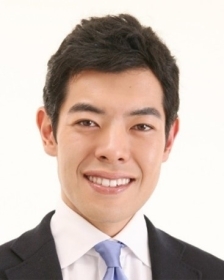
After Graduating from the University of Kyoto, he joined Recruit Holdings Co., Ltd. He also graduated from Columbia University (Master of International Affairs) and worked at the Center for Strategic and International Studies to develop Japan-U.S. relations. He was first elected in the 46th general election of the House of Representatives in 2012. He was appointed Parliamentary Vice-Minister for Foreign Affairs in 2018 and State Minister for Foreign Affairs in 2023.
Akiko Horiba, Senior Program Officer, Peacebuilding Program, The Sasakawa Peace Foundation
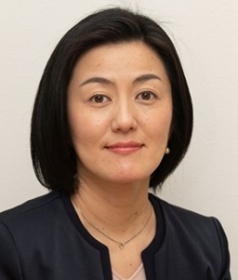
She has worked as a policy secretary for a member of the House of Representatives before her current position. Lecturer at Tokyo Institute of Technology and Hosei University. She received her PhD in Area Studies from Sophia University. Specializes in conflict analysis, peacebuilding, and Southeast Asian studies. She is currently involved in peace mediation supports and promoting WPS agenda.
Tomoko Matsuzawa, Director for International Cooperation on Women, Peace and Security (WPS)/ Director for Defense Cooperation in the Indo-Pacific Region, Indo-Pacific Regional Policy Division, Bureau of Defense Policy, Ministry of Defense Japan
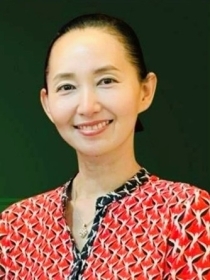
Over 20 years of experience in human rights and humanitarian field, including the UN, Permanent Mission of Japan to Geneva and International Red Cross. Served in conflict affected countries, such as South Sudan and Philippines Mindanao to provide humanitarian assistance. Since 2013, provide WPS training to over 3,000 military personnel in Africa, Asia and Europe as a Subject Matter Expert.
Misa Machimura, Program Officer, Office for Gender Equality and Poverty Reduction, Governance and Peacebuilding Department, JICA
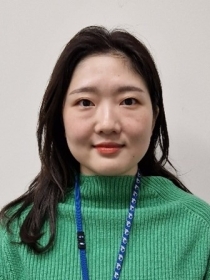
Received M.A. in Gender, Violence and Conflict from University of Sussex. After engaging in development and humanitarian support programs at an international NGO, currently working on a project supporting survivors of gender-based violence and promoting gender mainstreaming in the transportation and disaster risk reduction sectors at JICA.
Maki Kato, Country Representative of Afghanistan Program, Program Department, Peace Winds Japan
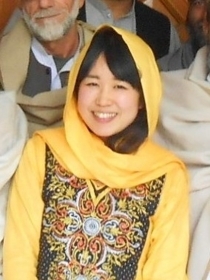
Graduated from School of International Liberal Studies, Waseda University. Completed special course of community development studies at the Autonomous University of Queretaro, Mexico. Since 2012, dedicated to NGO activities especially for Afghanistan through several NGOs. Joined Peace Winds Japan in 2020.
Mitsuyo Arizono, Former military staff officer for the United Nations Mission in South Sudan(UNMISS)
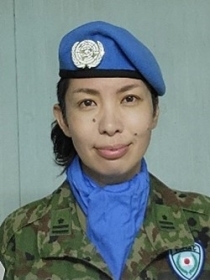
Graduated from the Command General Staff College in Japan Ground Self Defense Force. Studied Captain Career Course in United States Army Engineering School. Deployed to UNMISS as a member of TCC in 2013 and second duty as Staff Officer. Certificated of Commendation by Force Commander and nominated Military Gender Advocate of the year 2021, UNMISS. Worked at the Joint Staff Office and retired in 2023.
Speakers of “Panel Discussion by Experts” (In alphabetical order, titles omitted)
Maxime Houinato, Regional Director, UN Women East and Southern Africa Regional Office
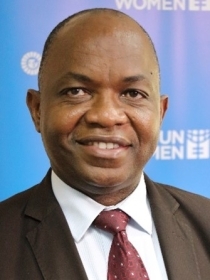
Prior to joining the UN, between 2000 and 2008, Houinato held the roles of Deputy Regional Director (West Africa), and Regional Director (Southern Africa) for Oxfam UK. He has collaborated with various organisations, including UNDP, ILO, and AfDB. He holds a PhD in Applied Sociology, an MBA and a Certificate in Sustainability & Social Impact.
Yoriko Meguro, Professor Emeritus of Sophia University, Tokyo / Chairperson of the Evaluation Committee of the National Action Plan on Women, Peace and Security
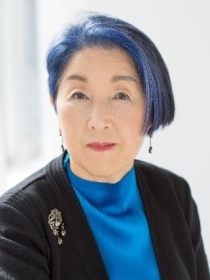
Received Ph.D. from Case Western Reserve University and M.A. from University of Tokyo, both in Sociology. Continued research and teaching sociology of gender since its initial stage. Alternate representative of Japanese government to the UN General Assembly in 1994/95 and representative to UN Commission on the Status of Women in 1998-2010.
Peter Roberts OAM, Minister and Deputy Head of Mission, Australian Embassy in Japan
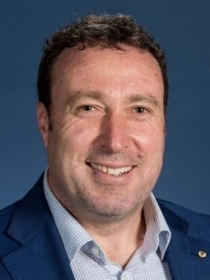
Peter was Australia’s Ambassador to Timor-Leste from 2018 to 2022. Peter has previously worked as a lead negotiator on the security relationship with Japan; as a Senior Civilian Monitor in the Bougainville Peace Monitoring Group. Peter received the Order of Australia Medal for his 2011 Japan earthquake and tsunami response work in Minami Sanriku.
Melanne Verveer, Executive Director, the Georgetown Institute for Women, Peace and Security
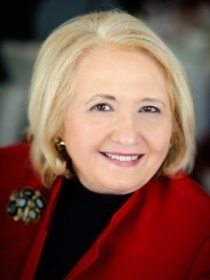
Most recently served as the first U.S. Ambassador for Global Women’s Issues, coordinating foreign policy issues and activities relating to the political, economic and social advancement of women. Served as the Chair and Co-CEO of Vital Voices Global Partnership, and during the Clinton Administration, as Assistant to the President and Chief of Staff to the First Lady.
Contact
Gender Mainstreaming Division, Ministry of Foreign Affairs of Japan
TEL: +81-(0)3-3580-3311


